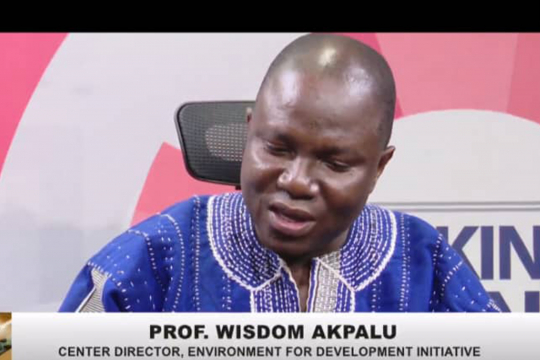EfD Ghana Director Wisdom Akpalu discussed the issue of Ghana’s closed fishing season on Ghana Broadcasting Corporation’s esteemed program, Talking Point on July 28. Wisdom Akpalu enriched the discussions with evidence-backed submissions, including the need to complement the closed season with other fisheries management strategies such as regulating the number of canoes and providing alternative livelihoods to fishers.
The closed fishing season is a government-implemented period during which fishing activities are halted to allow fish populations to replenish, aiming to address overfishing and ensure sustainable fisheries management.
“The closed season is just one of the numerous policies or management tools that we have, so we should not go with the idea that once you close the season everything will be okay,” he said. Citing evidence from a study he conducted around the socioeconomic impact of the 2022 closed season, Wisdom Akpalu noted that while the closed season is beneficial, it should be implemented alongside other fisheries management tools for enhanced outcomes.
Additionally, he stressed the necessity of regulating the sector's capacity to recover the estimated over $100 million lost annually. He revealed that the artisanal fishing sector is losing approximately $100 million annually due to overcapacity, noting that the current fleet of over 12,000 canoes far exceeds the optimal range of 8,000 to 9,000 canoes. This overcapacity has led to declining fish stocks and a significant drop in income levels to 40-50% of what they were 10-15 years ago.
On the fuel subsidy, he highlighted the potential for government savings from subsidy reductions during the closed season to be redirected towards training fisherfolk in alternative livelihood activities, enabling them to earn money through other means.
Wisdom Akpalu was joined on the panel by the President of the Ghana National Canoe Fishers Council and the Director of Hen Mpoano Ghana, who contributed their perspectives on the issue.
To watch the full episode, click here.
By: Vicentia Quartey
